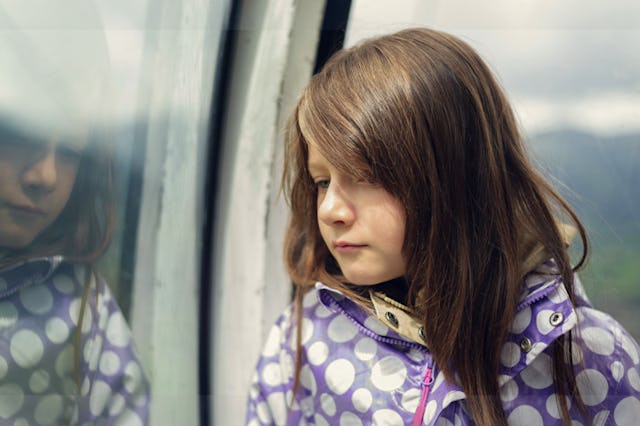Are Schools Failing Introverts?

My favorite part of school was the library. It was quiet and spacious, and full of not only school books but also “for fun” books. I did best on reading assignments and papers when I could sit at a study carrel, making notes and writing drafts at my own pace, uninterrupted. I did less well in group projects, in which we had to sit at the group library tables, largely due to the sociability of the collaboration and the noise of the other kids. More energy was spent navigating the personalities and negotiating workload than was spent actually learning. The groups required me to be so “on”—using skills I didn’t even really have yet—that I ended the meetings exhausted, still with homework left to do.
Schools, according to Michael Godsey, writing for The Atlantic, are trending toward collaboration, discussions and “interactive” learning, and away from solitary, quiet learning. That means that introverts may lose the way of learning that works best for them: time and quiet to read and research alone, without distractions. Godsey writes:
“The way in which certain instructional trends—education buzzwords like ‘collaborative learning’ and ‘project-based learning’ and ‘flipped classrooms’—are applied often neglect the needs of introverts. In fact, these trends could mean that classroom environments that embrace extroverted behavior—through dynamic and social learning activities—are being promoted now more than ever. These can be appealing qualities in the classroom, of course, but overemphasizing them can undermine the learning of students who are inward-thinking and easily drained by constant interactions with others.”
Godsey notes that, for introverts who feel most engaged when they’re in quiet environments, the forced social interaction of group collaboration can take a toll on them. He interviewed two students who’d been sent to an “alternative” high school—a school for kids who’d struggled in more traditional schools—and found that they’d thrived in the alternative school not so much because their social skills had improved but simply because the new school was quieter than the old school.
When I was a tutor for high school students, I was usually hired to help kids who were struggling to concentrate on their homework and complete it in a timely fashion. When I joined them in their rooms or at the kitchen table, I was often startled at how much distraction kids were expected to endure while ostensibly focusing on their studies. Even at home, parents were coming and going, the phone was ringing, the dogs were barking. My students usually improved when I made some gentle suggestions about turning off the phones, putting the dog outside, and just generally leaving them alone to do their homework.
Schools, especially large public schools, are anything but quiet and fostering of introspection. An emphasis on collaborative work, and its prerequisite sociability, can be a recipe for disaster for introverts.
So how does this jibe with the “schools are failing boys” trope—the idea that students who can sit still and be quiet (read: girls) are having more success in school than the typical active boy who doesn’t want to sit still? I wonder if the flipped classrooms and group-learning settings aren’t a way to shift the learning style away from everyone sits at her own desk and reads (which worked great for me) to include these more active, social learners.
Godsey does note that group activities can be good for introverts too: “[G]roup activities can serve a purpose in the teaching of introverts. In part because of the Common Core standards and the Internet increasingly serving as a proxy for classroom teachers, ‘cooperative learning’ has grown in popularity among teachers in recent decades. As the English teacher Abigail Walthausen noted in The Atlantic two years ago, ‘Common Core standards place far greater value on small-group discussion and student-led work than on any teacher-led instruction.’ Overall, this trend is a good thing. Several recent studies offer the latest evidence that students who engage in cooperative learning tend to outperform those immersed in traditional learning approaches—namely lectures. But cooperative learning doesn’t have to entail excessively social or overstimulating mandates; it can easily involve quiet components that facilitate internal contemplation.”
I hope that schools can accommodate both kinds of kids, and that by the time my boys are in school and reading, they’ll have plenty of time to hunker in the library. Introverts need space to learn in their own way, just like extroverts do. They can read in the carrel for as long as they need to, and when they’re feeling sociable, well, the big table is only a room away.
This article was originally published on